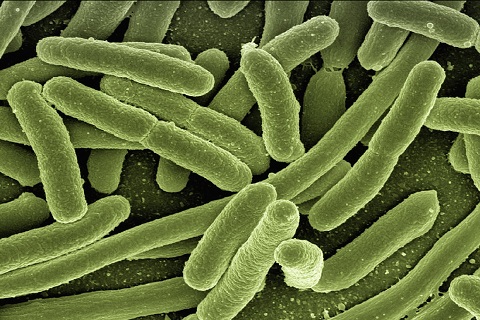New method using viruses to kill bacteria may help fight antibiotic resistance: Study

- Country:
- United States
Researchers have developed a new method to target and kill specific bacteria using viruses, an advance that may help overcome the growing threat of antibiotic resistance. The results of the study, published in the journal Cell, showed that bacteria-infecting viruses called bacteriophages, or simply phages, could kill different strains of the bacterium E. coli by making mutations in a viral protein that bound to host cells.
The researchers, including those from Massachusetts Institute of Technology (MIT) in the US, collaborating with the US Army, showed that the phages they tweaked in the lab were less likely to provoke resistance in bacteria. According to the researchers, antibiotic resistance is one of the most pressing public health concerns in the world.
For instance, a recent study, published in the journal Science, revealed that the rates of antibiotic resistance in bacteria present in animals raised for meat nearly doubled since 2000. "Finding a cure for antibiotic-resistant bacteria is particularly important for soldiers who are deployed to parts of the world where they may encounter unknown pathogens or even antibiotic-resistant bacteria," said James Burgess, program manager in the US Army.
Burgess added that wounded soldiers are even more susceptible to infections, and may come home carrying the drug-resistant bugs. To tackle this looming crisis, the researchers created several engineered phages that could kill E. coli grown in the lab.
The team created phages with about 10 million different configurations to the part of the virus that attached to bacteria, called the tail fibers. The researchers tested these variants against several strains of E. coli that had evolved to be resistant to the natural bacteriophage.
One way in which the E. coli became resistant to bacteriophages was by mutating certain receptors on its surface, the study noted. But, the MIT team found that some of their lab grown phages could kill even strains of E. coli missing these receptors.
One of the newly created phages, the researchers said, could eliminate two E. coli strains that were resistant to naturally occurring phages. "Phages represent a very different way of killing bacteria than antibiotics, which is complementary to antibiotics, rather than trying to replace them," said Timothy Lu, senior author of the study from MIT.
The researchers said that the Food and Drug Administration (FDA) in the US has approved treatments for killing harmful bacteria in food using bacteriophages. However, they added that the method is not widely used to treat infections since finding naturally occurring phages that can target the right kind of bacteria is a "difficult and time-consuming process."
To overcome this problem, the researchers have been working on lab-grown viral scaffolds that can be re-engineered to target different bacterial strains or different resistance mechanisms. "We think phages are a good toolkit for killing and knocking down bacteria levels inside a complex ecosystem, but in a targeted way," Lu said.
(This story has not been edited by Devdiscourse staff and is auto-generated from a syndicated feed.)
ALSO READ
Introducing the Motorola Edge 50 Pro: Featuring the World’s First True Color Camera and Display, Validated by Pantone, Now Available in India for Rs. 27,999*
Syro-Malabar Church youth organizations to host screening of thought-provoking film 'The Kerala Story'
Miller could be available from next game: GT pacer Spencer Johnson
Biplab Deb owes people an explanation for his resignation as Tripura CM: CPI(M) leader
Science News Roundup: Total solar eclipse: North Americans celebrate with cheers, music and matrimony; SpaceX launches South Korea's second spy satellite amid race with North and more










